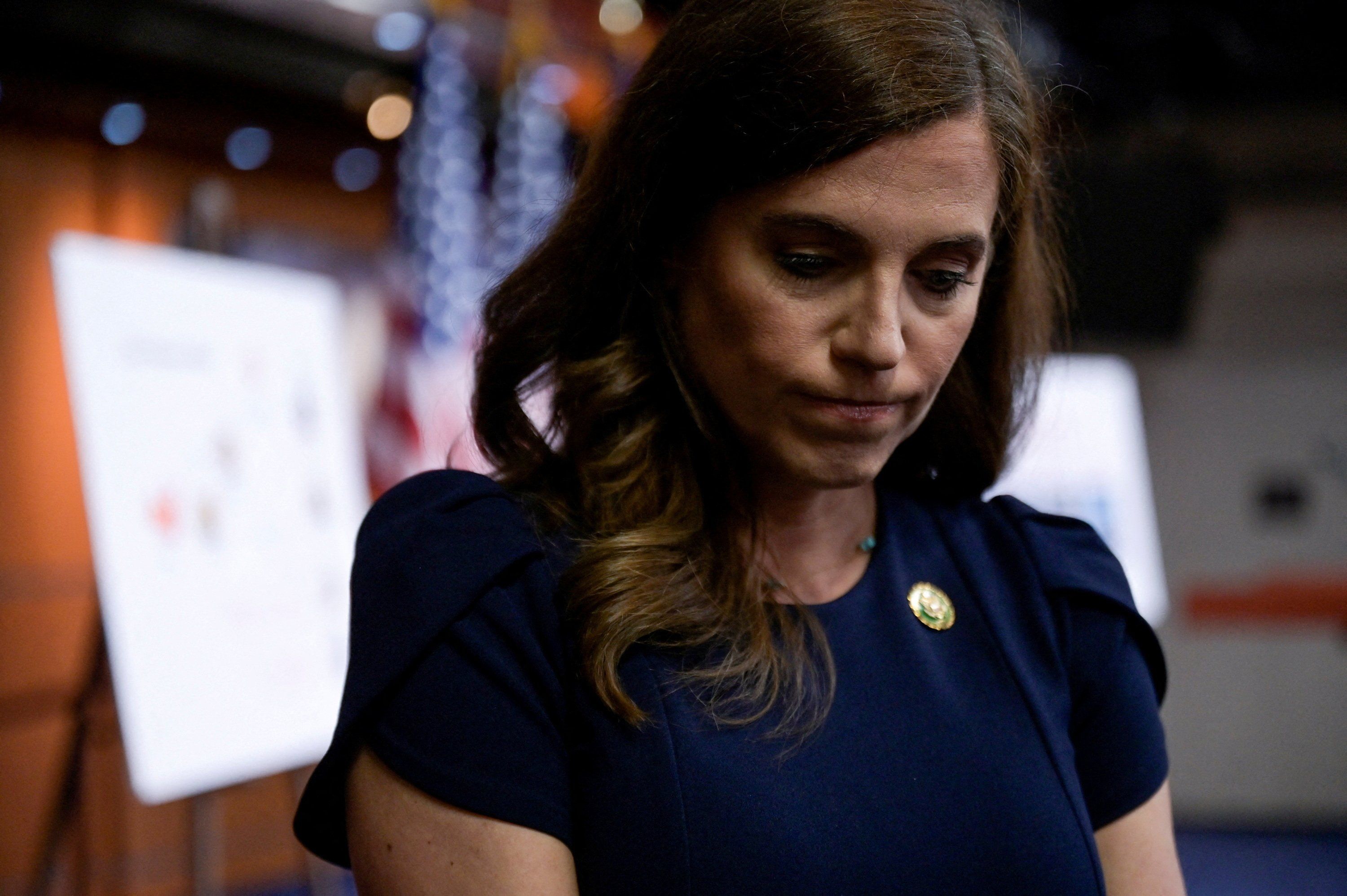Sexual abuse and assault advocates are warning against the use of a new "hotline" that Rep. Nancy Mace (R-SC) set up for abuse victims to report their stories, Mother Jones reported on Tuesday.
The phone number was displayed as part of Mace's speech on the House floor this week, where she accused her formerfiancé and three other men of extensive sexual abuse and voyeurism, allegations that two of those men have publicly denied.
"Mace also alleged in the speech that South Carolina’s Republican Attorney General Alan Wilson — whom she would likely face in a primary for governor, a race she has said she is 'seriously considering' entering — failed to properly investigate the allegations after she brought forth evidence, which allegedly included nonconsensual sexualimages of her and others," reported Julianne McShane. "In a lengthy statement, Wilson’s office rejected Mace’s claims that it did not properly respond."
ALSO READ: Dems in disarray: Unforced error nixes Elon Musk subpoena — and sparks infighting
Amid all of the controversy, Mace received some praise from commenters on social media for setting up the telephone resource, even as a number of people reportedly prank-called it to report President Donald Trump, who has been repeatedly accused of rape and was adjudicated liable for sexual abuse.
But there are problems with the "hotline," McShane noted: "when I called Mace’s hotline three different times — each time at least one hour apart — on Tuesday afternoon, it seemed to essentially be a glorified voicemail. Every time, the line rang repeatedly before ending with an automated message from Mace herself: 'Hi, this is Congresswoman Nancy Mace, and you’ve reached our office victim hotline. Please note your information is confidential. Please leave a detailed message and we will contact you as soon as possible. You may also text us at this number.'"
Deborah Freel, who heads the Charleston sexual assault survivors organization Tri-County S.P.E.A.K.S. in Mace's district, told McShane people should avoid using this number.
“It isn’t a hotline. It’s not connecting a survivor or someone with a concern to the resources that they need in that moment, which is really challenging. If the intention was to get them those resources, then it would be better for them to be directed to either a local or national resource.”
Laura Hudson of the South Carolina Victim Assistance Network put it more bluntly, saying Mace “set us back about 25 years” by directing survivors to her own line rather than actual networks trained to assist them.
